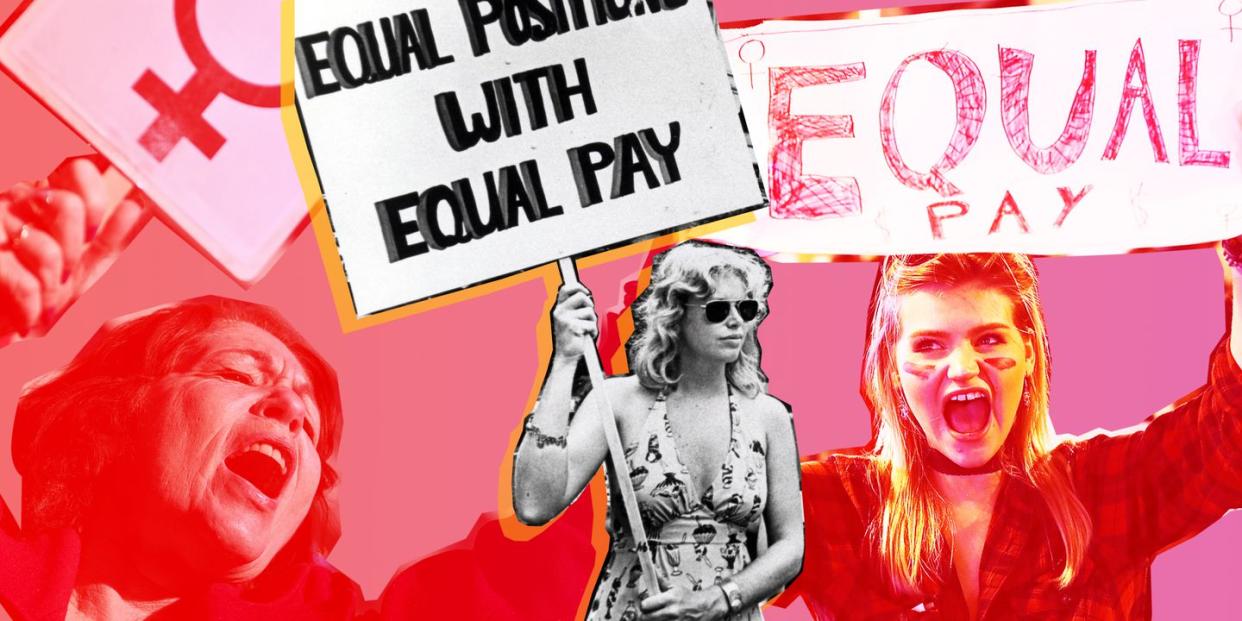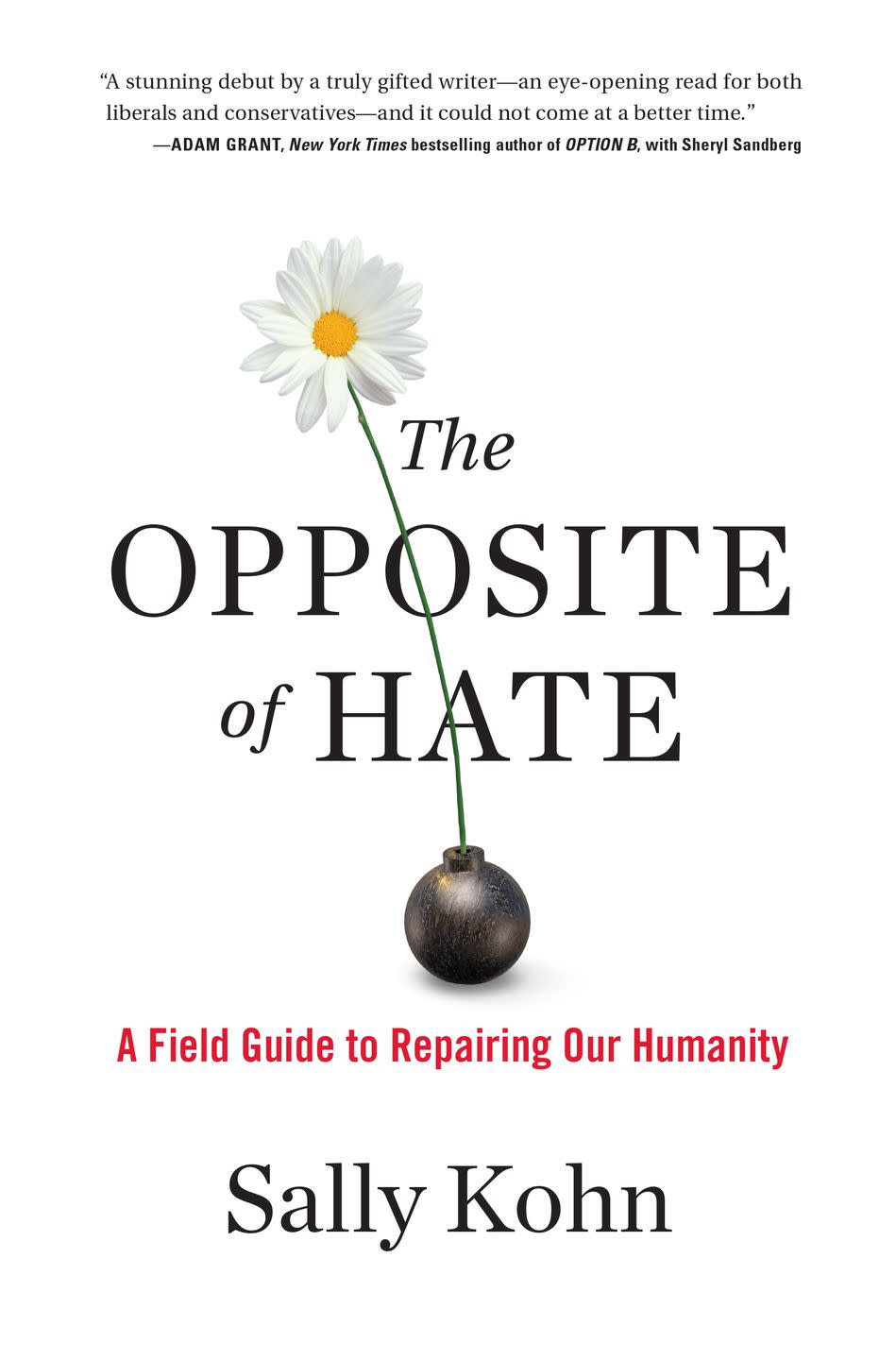Can This Please Be The Last Equal Pay Day?

If you’re a woman reading this: Congratulations! Today is Equal Pay Day - the day, 100 days into this calendar year, that marks the point at which you finally have taken home the amount of pay that that your male counterparts made last year alone. That is, it takes on average 465 days for women to earn what men in the same jobs and earn in just 365 days.
Usually I love celebrating unofficial national holidays. National Ice Cream Day? Two extra large scoops of vanilla, please. National Puppy Day? Extra snuggles for my doodle Sadie. National Eat Something On A Stick Day? Yeah, that’s a thing and I’m all up in corndogs and kebabs.
But Equal Pay Day? Not exactly one I “celebrate.”
Don’t get me wrong: occasions like Equal Pay Day are critical in raising awareness about the issue at hand. It’s just that I would love if this could be the last Equal Pay Day, so that instead of spending our collective energies on fighting for fair compensation, we could spend them on - oh I don’t know - the actual work we’re doing, and should be paid equally for.
Women on average make $0.80 cents for every $1.00 men make. And for women of color in particular, the gap is even worse. Compared to white men, black women earn just $0.63 cents for every dollar men make and Latinas earn just $0.54 cents. That’s why Black Women’s Equal Pay Day doesn’t actually come until August 7 this year. And Latina Equal Pay Day will fall on November 1. Think about that. This year will almost be over before Latina women in the United States will have earned what white men earned in half the time.
According to economist Evelyn Murphy, this wage gap costs the average American woman who works full-time between $700,000 and $2 million over the course of her lifetime.
So I suppose it’s good that we have “holidays” that draw attention to this profound inequity and injustice, but we also need to pay attention to the root cause of this inequality, which I believe is hate.
In recent years, I’ve been on a mission to understand hate in our culture - why we hate, how we hate, and how we can all hate less. (My book on the topic, The Opposite of Hate, is out today!) What I discovered is that systems of inequality - like the pay gap - are rooted in misogyny, sexism, and racism, and finding solutions requires confronting a lot of uncomfortable truths about our explicit and implicit biases, who we are as a country, and who - as a society - we value.
Paying one person less than another person can have a lot of explanations, including actual differences in experience and quality of work. But when there are statistical patterns of discrimination that apply broadly to entire groups of people, such that, for instance, women and people of color are habitually, systemically on average paid less than white men, the only way to explain that is that we as a society habitually, systemically value white men more than others. And devalue and demean women and people of color. And the word for habitually, systemically treating some groups of people as inherently inferior and less than others, consciously or unconsciously - is hate. We as a society hate women and people of color while at the same time giving white men an unfair advantage.
Progress for human rights in the U.S. has always been slow; women didn’t gain the right to vote until the early part of the 20th century, and African Americans later than that. It wasn’t until 1993 that marital rape - a husband raping his wife, or vice versa - was officially deemed a crime in all 50 states. But as I say in my book, I don’t think it’s your fault that the United States has a particularly racist, sexist, hate-filled history that has shaped our present mentality and actions. Still, as residents of this great country, it is your responsibility - all of our responsibility - to do something about it now.
So when you take a job - and negotiate your salary, if you are even in a fortunate enough position to get to do so - know that the pay gap is real and ask for more. Research and ask around to find out what men in your role or industry are making, and say you’ll have what they’re having. But in addition, especially for women in service industries and domestic labor who have less power and voice at work, we need systemic reforms that address these systemic inequities - like laws that mandate equal pay for equal work. Unfortunately, we appear to be moving in the wrong direction on that front; the Trump Administration scrapped a policy created under the Obama Administration to start tracking data on the pay gap at the federal level to better inform policymaking solutions.
Which is why, if we’re going to make this the last Equal Pay Day, we need not only to work together as women - with male allies - to demand better pay and treatment in every single workplace but also vote to elect leaders who prioritize equal treatment and understand the vital role public policy must play to ensure equal opportunity, including equal pay. Leaders who don't hate women.
So for this Equal Pay Day, post about the wage gaps on your social media feeds and talk to your friends and co-workers about equality. And make sure you’re registered to vote for the fall elections, plus make sure five of your friends are registered too. You know that saying, “Put your money where your mouth is?” Well we don’t have as much money, but we’re damn sure gonna put our votes and our voices where our money should be. And maybe this year we'll finally make this hateful, gross inequity a thing of the past.
Then we can pick a day worth actually celebrating.

Sally Kohn is a CNN political commentator, activist and the author of The Opposite of Hate: A Field Guide to Repairing Our Humanity (Algonquin Books; April 10, 2018). She is also the host of the State of Resistance podcast.
You Might Also Like

